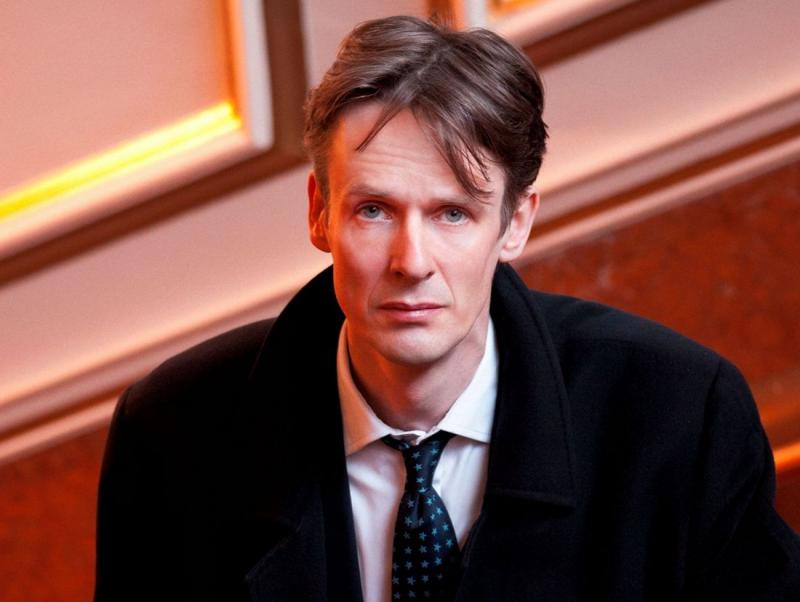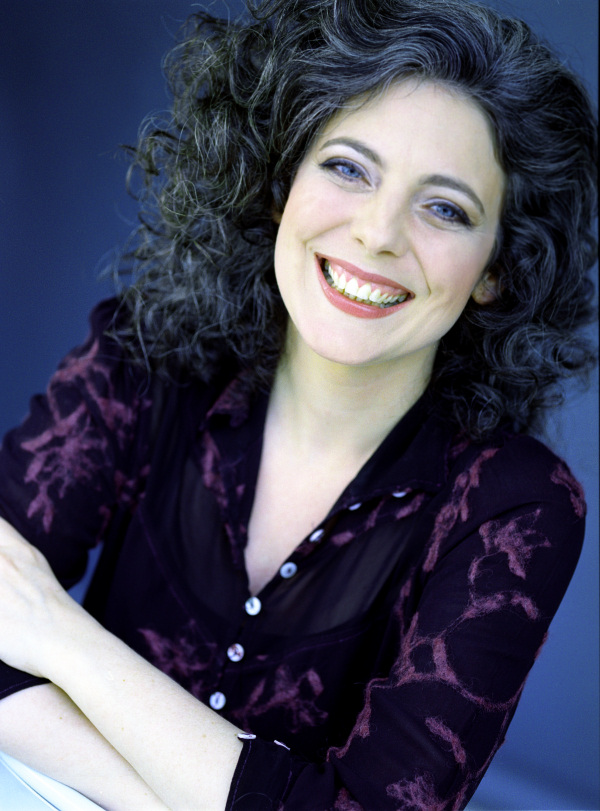Daneman, Bostridge, Drake, Middle Temple Hall | reviews, news & interviews
Daneman, Bostridge, Drake, Middle Temple Hall
Daneman, Bostridge, Drake, Middle Temple Hall
Pianist and soprano capture Schumann's emotional range, but the tenor seems distracted

Temple Music's enterprising song series, directed by pianist Julius Drake, brought a welcome rarity to Middle Temple Hall last night. Schumann's Myrthen, the garland of twenty-six songs dedicated to his intended bride Clara Wieck, are seldom heard in a complete performance. Even with an interval in the middle, they serve as a reminder of the power and sheer emotional range of Schumann's music.
At the heart of everything last night was Julius Drake. One song where everything went completely right, the expressive weight, the shape and line, was the second "Lied der Braut" to words by Rückert, sung by soprano Sophie Daneman. It is a short song which could pass by unnoticed, but from the hushed opening chords to its to the final “lass' mich” it conveyed sheer magic. Drake also delivers power and authority when required, not least in setting the scene for the opening of "Rätsel" with a powerfully declaimed B natural.
 Sophie Daneman's infectiously bright soprano voice recalled the inimitable Elly Ameling at her best. There were endless musical things to admire: she nailed the tricky rising fourth-fifth-sixth figure at the end of each verse of "Highland Lullaby" to perfection. I also liked the way she conveyed the seamlessness of the melodic line when, as happens all the time in Schumann, it is passed back and forth to the piano part.
Sophie Daneman's infectiously bright soprano voice recalled the inimitable Elly Ameling at her best. There were endless musical things to admire: she nailed the tricky rising fourth-fifth-sixth figure at the end of each verse of "Highland Lullaby" to perfection. I also liked the way she conveyed the seamlessness of the melodic line when, as happens all the time in Schumann, it is passed back and forth to the piano part.
She is a singer who radiates charm and involvement, with a vivacious and engaging platform manner. It is not all abut lightness: she was also reaching deep into the subtleties of the poems. There is scarcely a verse in Heinrich Heine's poetry which is not suffused with questioning irony, which she delivered in just the right measure to "Die Lotosblume". There were also clever word-painting and gesture in a line such as "das Mägdlein horchet" (the girl listens out) where the sense of wanting to be surprised came across vividly. In the songs where Ian Bostridge was singing, and where she was sitting back and watching, she remained an encouraging and supportive presence.
Ian Bostridge's performance was far more problematic. He didn't seem fully to warm up until the second half of the concert; it took him a long time to find reliable pitch, and in the early part of the recital he looked very distracted. Daneman's charm and irresistible musicality were what kept the show on the road. She was also far better prepared in the later vocal duets by Schumann which had begun the programme.
Close to the end of the concert, however, in two Schumann duets from 1840, where an ardent boy is begging to be let in to a girl's room, Bostridge's mood lightened up considerably, and he finally engaged fully in the proceedings. In the encore, all three protagonists brought an irresistible warmth to that all-too-rare thing, a Schubert vocal duet, “Licht und Liebe”. It rounded off the evening exquisitely.
rating
Explore topics
Share this article
Add comment
The future of Arts Journalism
You can stop theartsdesk.com closing!
We urgently need financing to survive. Our fundraising drive has thus far raised £49,000 but we need to reach £100,000 or we will be forced to close. Please contribute here: https://gofund.me/c3f6033d
And if you can forward this information to anyone who might assist, we’d be grateful.

Subscribe to theartsdesk.com
Thank you for continuing to read our work on theartsdesk.com. For unlimited access to every article in its entirety, including our archive of more than 15,000 pieces, we're asking for £5 per month or £40 per year. We feel it's a very good deal, and hope you do too.
To take a subscription now simply click here.
And if you're looking for that extra gift for a friend or family member, why not treat them to a theartsdesk.com gift subscription?
more Classical music
 Interview: Quinteto Astor Piazzolla on playing in London and why Mick Jagger's a fan
Music Director Julián Vat and pianist Matias Feigin compare notes on Piazzolla
Interview: Quinteto Astor Piazzolla on playing in London and why Mick Jagger's a fan
Music Director Julián Vat and pianist Matias Feigin compare notes on Piazzolla
 Classical CDs: Bells, birdsong and braggadocio
British contemporary music, percussive piano concertos and a talented baritone sings Mozart
Classical CDs: Bells, birdsong and braggadocio
British contemporary music, percussive piano concertos and a talented baritone sings Mozart
 Siglo de Oro, Wigmore Hall review - electronic Lamentations and Trojan tragedy
Committed and intense performance of a newly-commissioned oratorio
Siglo de Oro, Wigmore Hall review - electronic Lamentations and Trojan tragedy
Committed and intense performance of a newly-commissioned oratorio
 Alfred Brendel 1931-2025 - a personal tribute
A master of feeling and intellect
Alfred Brendel 1931-2025 - a personal tribute
A master of feeling and intellect
 Aldeburgh Festival, Weekend 2 review - nine premieres, three young ensembles - and Allan Clayton
A solstice sunrise swim crowned the best of times at this phoenix of a festival
Aldeburgh Festival, Weekend 2 review - nine premieres, three young ensembles - and Allan Clayton
A solstice sunrise swim crowned the best of times at this phoenix of a festival
 RNCM International Diploma Artists, BBC Philharmonic, MediaCity, Salford review - spotting stars of tomorrow
Cream of the graduate crop from Manchester's Music College show what they can do
RNCM International Diploma Artists, BBC Philharmonic, MediaCity, Salford review - spotting stars of tomorrow
Cream of the graduate crop from Manchester's Music College show what they can do
 Classical CDs: Bells, whistles and bowing techniques
A great pianist's early recordings boxed up, plus classical string quartets, French piano trios and a big American symphony
Classical CDs: Bells, whistles and bowing techniques
A great pianist's early recordings boxed up, plus classical string quartets, French piano trios and a big American symphony
 Monteverdi Choir, English Baroque Soloists, Suzuki, St Martin-in-the-Fields review - the perfect temperature for Bach
A dream cantata date for Japanese maestro and local supergroup
Monteverdi Choir, English Baroque Soloists, Suzuki, St Martin-in-the-Fields review - the perfect temperature for Bach
A dream cantata date for Japanese maestro and local supergroup
 Aldeburgh Festival, Weekend 1 review - dance to the music of time
From Chekhovian opera to supernatural ballads, past passions return to life by the sea
Aldeburgh Festival, Weekend 1 review - dance to the music of time
From Chekhovian opera to supernatural ballads, past passions return to life by the sea

Comments
Hello, A lovely review of a
Het spijt me vreselijk, for
Het spijt me vreselijk, for that terrible error which I have now amended.